Honda to cut back on EV investment and focus on hybrids
The Japanese manufacturer has stated that it will reduce its investments in the areas of electrification and software from the previously planned 10 trillion yen to 7 trillion yen by 2030. In view of the current market slowdown, Honda expects BEV sales to fall below the previously targeted 30 per cent mark in 2030.
The company still intends to reach its goals of ‘carbon neutrality for all products and corporate activities’ and ‘zero traffic collision fatalities’ by 2050. However, the company does not believe that it will reach its 2030 target of 30% EV sales. Citing a high market demand for HEV models, Honda is now realigning its strategy, so that “mostly next-generation HEV models to be introduced to market in 2027 onward, as the powertrain that will play a key role during the transition period toward the popularization of EVs and further enhance its HEV lineup.”
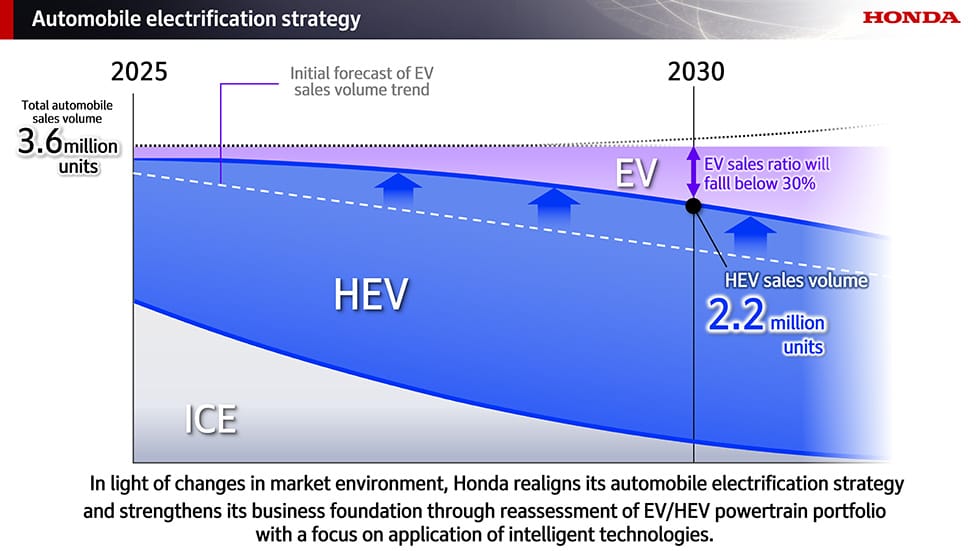
Under the new strategic plan, Honda plans to improve profitability with the continuous expansion of its motorcycle business, coupled with cost reduction effects in the automobile business associated with the adoption of the next-generation e:HEV system and platforms, and an increase in unit sales of HEV models. Specifically, Honda cites the goal of improving HEV technology to improve the fuel economy by 10%, as well as reduce costs for the hybrid system itself by 50%, at least compared to 2018 models. In terms of model development, the company writes that it will launch 13 HEV models globally over a four-year span starting in 2027.
Next to the hybrid vehicle production and development plans, Honda announced plans to develop a next-generation ADAS system, which will play a major role in the company’s 2050 plans to avoid accidents. The system is planned to be ready for its market launch in 2027, when “Honda will apply this new, next-generation ADAS to a broad range of key EV and HEV models Honda will launch in North America and Japan.”
For China, Honda has another plan to develop technology exclusively for the local market: “In China, where electrification and application of intelligent technologies are proceeding faster than other regions, Honda will work with Momenta Global Limited, a Chinese startup company developing autonomous driving technology, to develop next-generation ADAS optimized for road conditions in China and install it to all future models Honda will launch in China.”
Honda is also developing something specifically for the North American market, where customers tend to prefer bigger vehicles: “Honda will develop a hybrid system for large-size vehicles, which will feature powerful driving performance, high towing capability and high environmental performance.” This is to be launched “in the latter half of the 2020s.”
As Honda writes that it intends to use the motorcycle market to break further into profitability, the company also cites its sales numbers for the last fiscal year: “Honda motorcycle unit sales reached 20.57 million units, which account for approximately 40% of the global motorcycle market, setting an all-time record for fiscal year sales in 37 countries and territories.” The focus here lies on the Global South in particular, with India being the most important market. Honda expects this market to grow globally to a demand of “60 million units by around 2030.” Honda’s strategy here is also not exclusively electric, however, but the company will accelerate the electrification of its motorcycle products, “while also improving the fuel economy of its ICE models and expanding the lineup of flex-fuel compatible models.”
Recently, Honda had already announced that it was putting its plan to invest billions in electric cars in Canada on hold for “about two years.” Not long before that, the company had presented two new electric cars for the Chinese market. In March, Honda still planned to launch three new electric cars on the Malaysian market by 2027. A new fuel cell module with 150 kW of power was also presented earlier this year, following the failure of the Nissan-Honda merger.

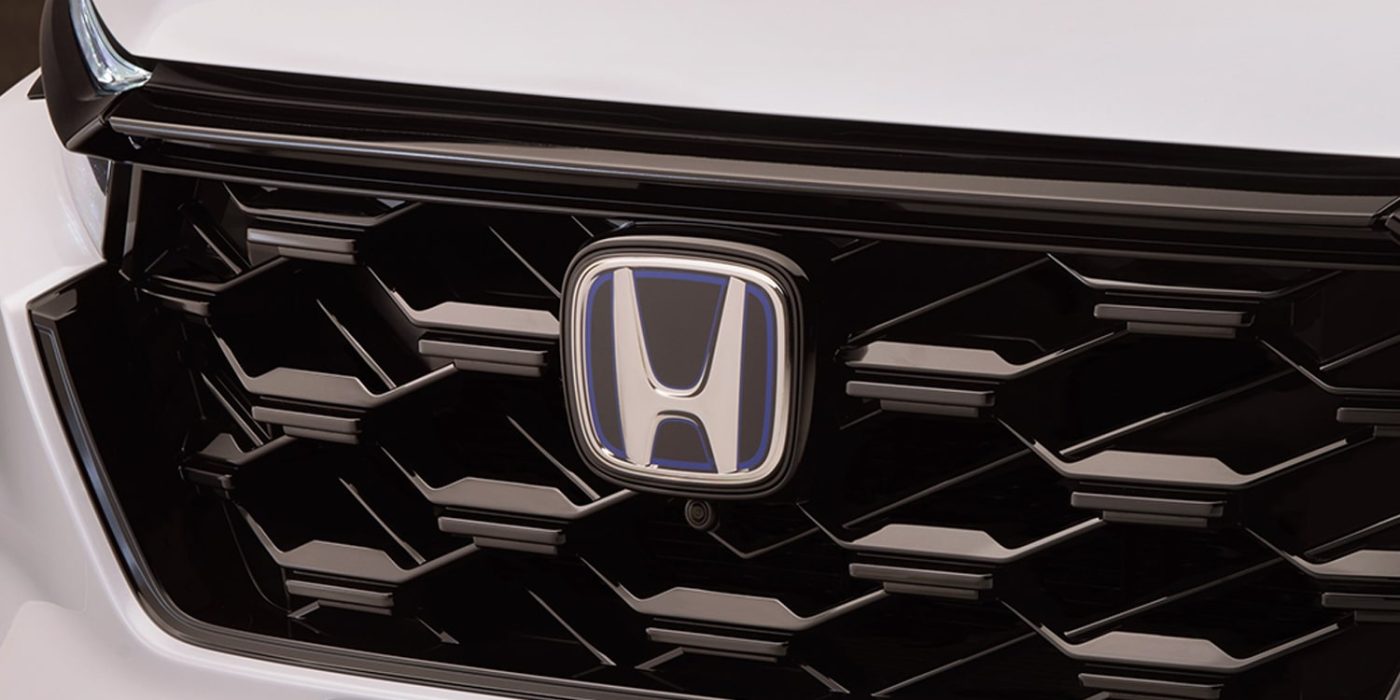
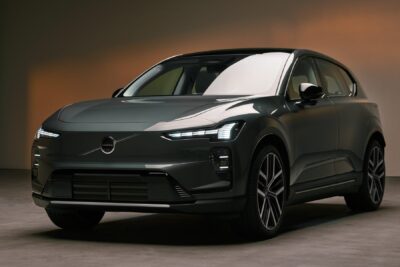
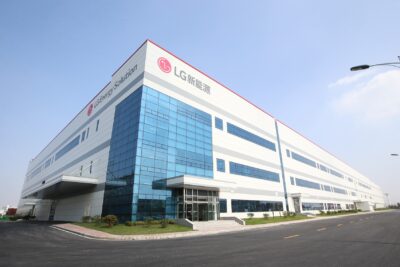
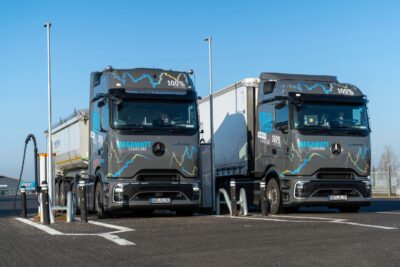
1 Comment